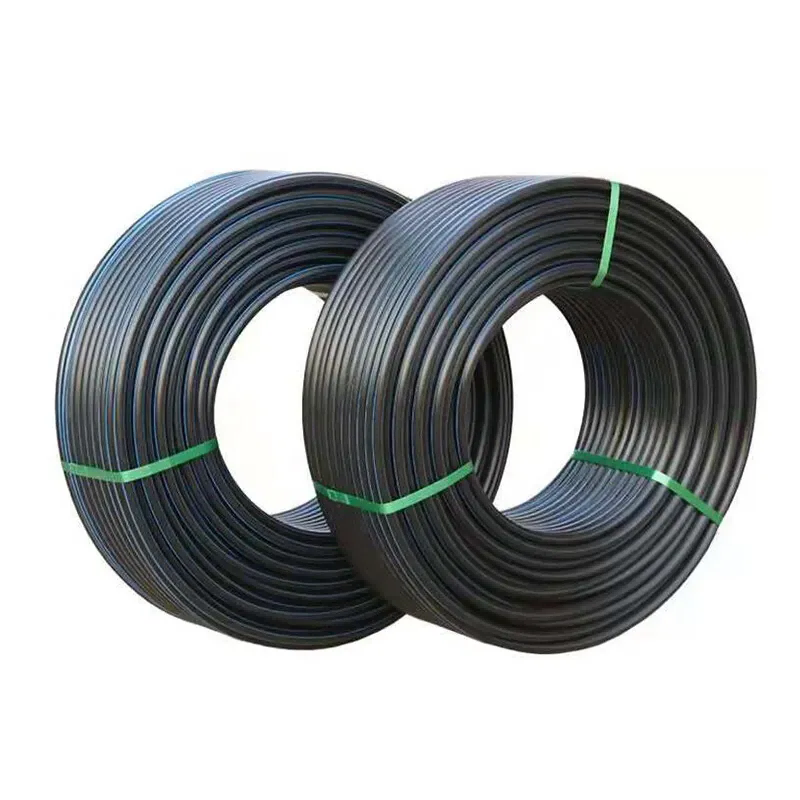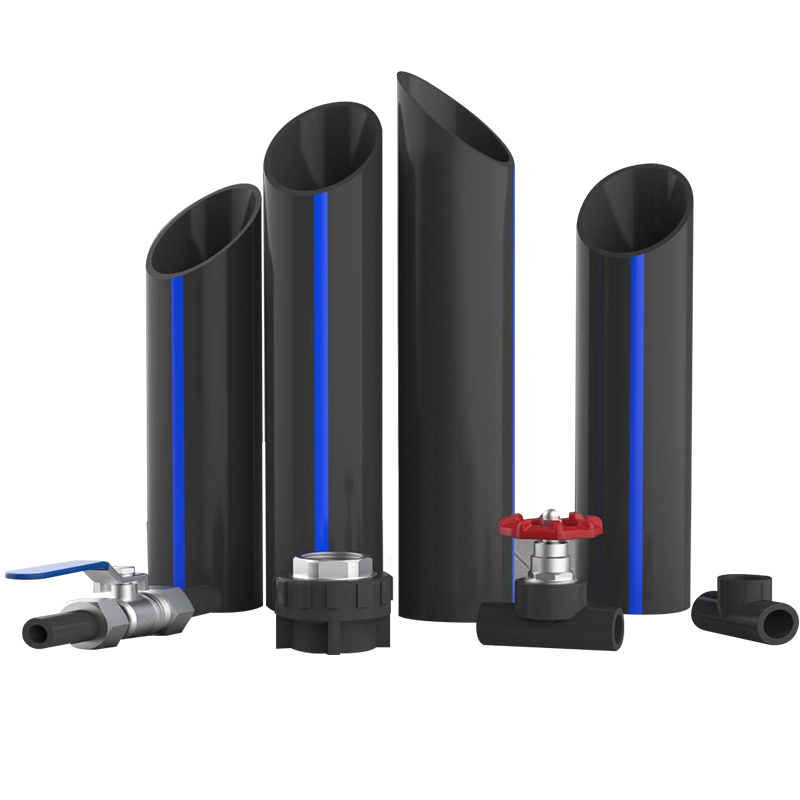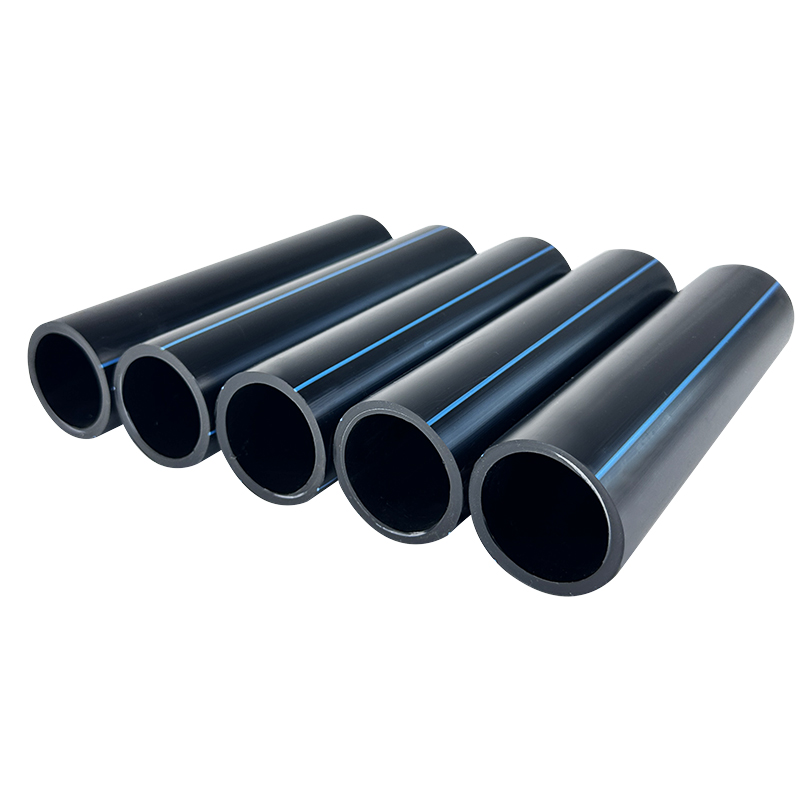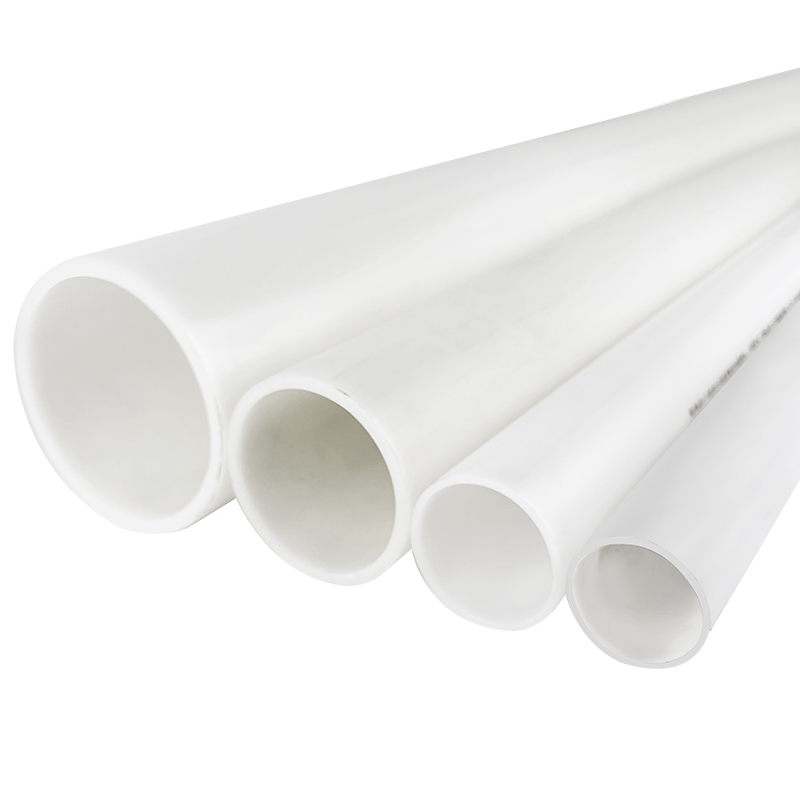Ultimate Guide to HDPE Pipes and Fittings: Benefits, Applications, and Standards
Categories:HDPE Pipe and Fitting Author: author
High-density polyethylene, often shortened to HDPE, has changed the way industries think about plumbing, water supply, and conduit systems. For decades, steel and concrete were the go-to options. But as construction needs evolved and efficiency became more important, HDPE pipes and fittings became the smarter solution. In this guide, we will walk through the benefits, applications, and standards of HDPE pipe systems, focusing on HDPE water plumbing systems and HDPE electrical conduit solutions.
Why HDPE Pipes and Fittings Are Popular Today?
HDPE pipes and fittings are made from a thermoplastic polymer, which means they can withstand tough environments without corroding. Unlike metal or concrete pipes, they are lightweight, flexible, and resistant to chemicals. Here are some of the main advantages:
Durability – HDPE pipes can last more than 50 years under normal conditions. They do not rust, crack, or wear out easily.
Flexibility – Because of their high elasticity, they can absorb shock from soil movements or heavy loads, reducing the risk of breakage.
Corrosion Resistance – HDPE pipes resist most acids, salts, and chemicals, which makes them ideal for agriculture, water supply, and industrial applications.
Lightweight – They are much easier to transport and install compared to concrete or metal pipes.
Leak-Free Joints – Fusion welding creates seamless connections that prevent leakage, saving water and reducing maintenance.
Cost-Effective – Lower installation costs and minimal maintenance make HDPE pipes a long-term, budget-friendly choice.
Main Types of HDPE Pipe and Fitting Systems
HDPE solutions can be divided into two major categories:
● HDPE Electrical Conduit System
Each type has unique applications and benefits, so let's explore them in detail.
1. HDPE Water Plumbing System
Water distribution is one of the biggest areas where HDPE pipes play a vital role. Within this category, there are three main subtypes:
HDPE Agricultural Irrigation
Farmers and agricultural companies often choose HDPE irrigation pipes because they are lightweight and easy to handle in the field. Traditional irrigation systems with metal or PVC pipes can be expensive to maintain and are prone to cracking. HDPE, however, is strong and flexible, making it suitable for drip irrigation, sprinkler systems, and water delivery across large farms.
Benefits for agriculture:
● Withstands harsh outdoor environments and UV exposure.
● Resistant to chemicals often used in fertilizers or pesticides.
● Flexible enough to follow uneven terrain.
● Reduces water loss due to leak-proof joints.
By choosing HDPE agricultural irrigation pipes from ULP, farmers can save money on water and maintenance costs, while also improving crop yield efficiency.
HDPE Agricultural Irrigation Pipe
HDPE Water Supply
Municipal water supply networks increasingly rely on HDPE water supply pipes. They provide a safe and hygienic way of transporting drinking water because they do not corrode or leach harmful substances. Many governments have updated their standards to recommend HDPE for both urban and rural water systems.
Benefits for water supply:
● Safe for drinking water due to non-toxic material.
● Smooth internal surface reduces friction and maintains water pressure.
● Long service life reduces the need for frequent pipe replacement.
● Strong joints prevent contamination from entering the system.
ULP manufactures HDPE water supply pipes in a variety of diameters and pressure ratings, ensuring compatibility with small residential systems and large-scale municipal projects.
HDPE Water Plumbing and Fittings System
HDPE Drainage Pipe
Drainage is another key sector where HDPE pipes outperform traditional systems. HDPE drainage pipes are used in residential construction, road projects, and industrial waste management. They are designed to withstand large water volumes and can handle both stormwater and wastewater.
Benefits for drainage:
● Resistant to blockages thanks to smooth bore design.
● Withstands soil pressure in underground applications.
● Durable under heavy rainfall and road traffic loads.
● Cost-effective and quick to install compared to concrete drains.
When combined with high-quality HDPE fittings from ULP, these drainage solutions are leak-proof, long-lasting, and reliable.
2. HDPE Electrical Conduit System
Apart from water applications, HDPE pipes are also widely used in electrical systems. HDPE electrical conduit provides a safe pathway for cables and wiring, especially in underground installations.
Benefits of HDPE electrical conduit:
● Protects cables from moisture, chemicals, and mechanical damage.
● Flexible enough to be laid in curved or sloped environments without additional joints.
● Non-conductive, ensuring electrical safety.
● Cost-saving due to easy installation and minimal maintenance.
ULP HDPE electrical conduit pipes are designed to meet both residential and industrial needs. They are commonly used in telecom projects, fiber optic cable protection, and power grid installations.
Standards for HDPE Pipes and Fittings
To ensure quality and safety, HDPE pipes must comply with international and national standards. Some widely recognized standards are:
ISO 4427 – For polyethylene pipes for water supply.
ISO 4437 – For gas distribution systems.
ASTM D3035 / F714 – For pressure-rated polyethylene pipes.
DIN 8074/8075 – German standards for water supply pipes.
Being one of the complete one-stop pipeline and accessory manufacturers, we ensure our HDPE pipes and fittings cover most of the main piping standards in the world. We use advanced production technology and strict quality control to deliver products trusted worldwide.
Why Choose ULP for HDPE Pipes and Fittings?
ULP is more than just a manufacturer – it's a full solutions provider. We supply a complete range of HDPE pipes and fittings, covering agricultural irrigation, municipal water supply, drainage, and electrical conduit. Our fittings are designed to match perfectly with our pipes, ensuring leak-free, durable, and easy-to-install systems for all types of projects.
Key advantages of ULP HDPE pipes and fittings:
Wide product range – From small-diameter pipes to large industrial-grade HDPE pipes, plus a complete selection of HDPE fittings such as elbows, tees, reducers, couplers, and end caps.
Custom services – Tailor-made HDPE pipe and fitting solutions based on project requirements, including customized dimensions and configurations.
International standards compliance – Both pipes and fittings are manufactured under strict quality controls, certified to meet ISO, ASTM, and other global benchmarks.
Reliable supply chain – Timely delivery of both pipes and fittings to ensure seamless installation in large infrastructure projects.
Competitive pricing – High-quality pipes and precision-engineered fittings at cost-effective rates.
ULP has built a strong reputation as a trusted HDPE pipe and fitting supplier for agriculture, construction, and industrial sectors. By sourcing both pipes and fittings from ULP, you can enjoy a one-stop solution that guarantees compatibility, durability, and long-term performance.
Conclusion
From agriculture to municipal projects, from drainage systems to electrical conduit, HDPE pipes and fittings have become the first choice for engineers, contractors, and industries worldwide. They are durable, flexible, safe, and cost-effective.
With a full range of products and custom solutions, ULP stands out as a trusted partner for all HDPE pipe requirements. Whether you need HDPE agricultural irrigation pipes, water supply systems, drainage pipes, or HDPE electrical conduit solutions, ULP can provide the right product that meets international standards and ensures long-term reliability.
Browse our HDPE pipes and fittings or contact us to explore how we can integrate our products into your project.





